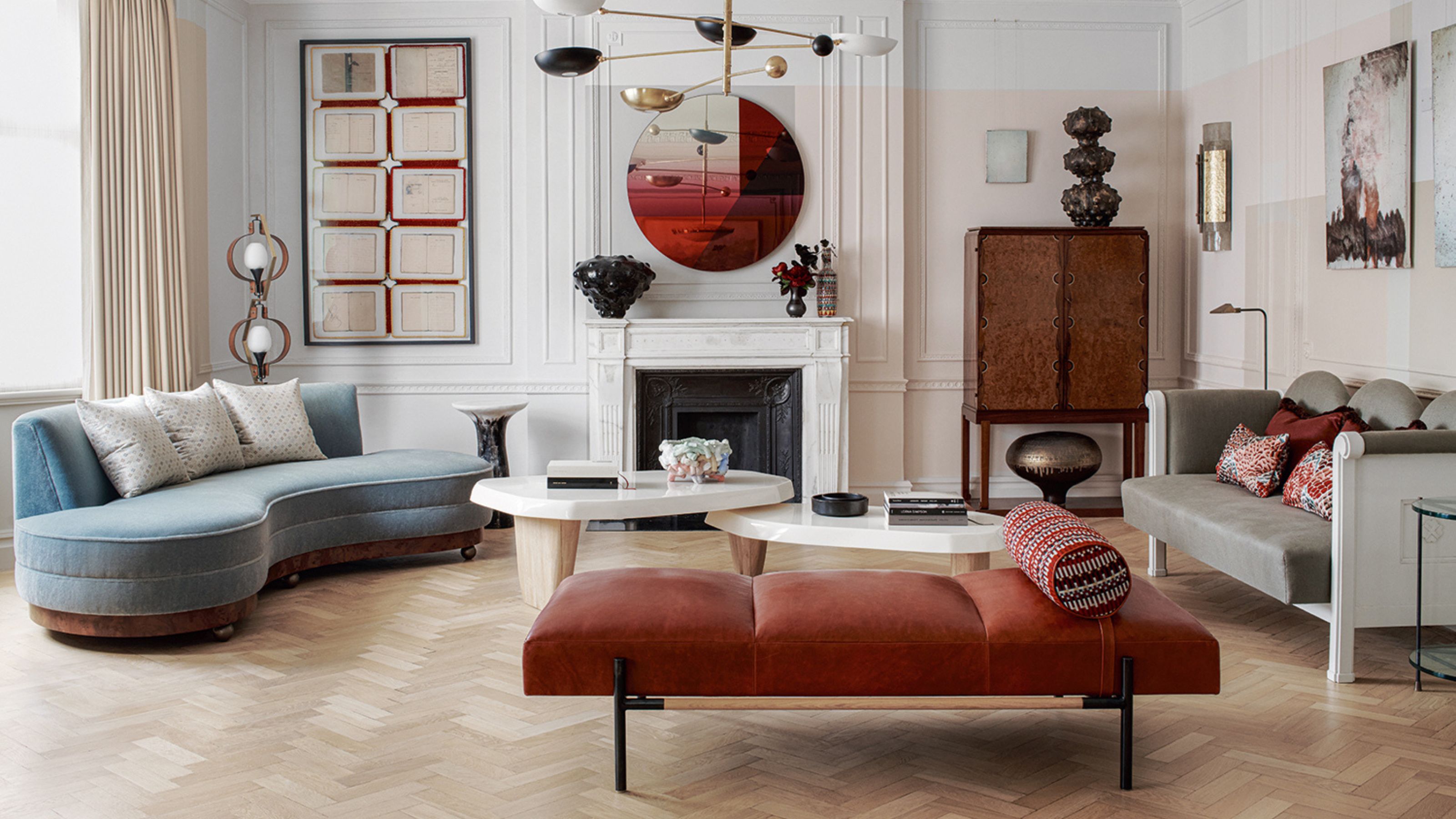
Incorporating daybeds in living rooms is not as common as it should be. A cross between a chaise, a sofa and a bed, they’re the ultimate, multifunctional furniture piece — perfect for providing an extra perch during social gatherings, a spot for an afternoon snooze, and they can even be moved around the home if you choose a light, freestanding design.
If you have the space, a modern daybed is always a wise investment. It can complement other seating arrangements in an open-plan room without overcrowding it, and coming in all kinds of guises — from slender freestanding designs to more substantial built-in styles — it can even add a stunning sculptural element to the space.
There are also plenty of daybed ideas for small spaces. Due to their size, they offer the perfect in-between of a sofa and armchair. Plus, the ways to style them are endless, which the following nine ideas for putting daybeds in living rooms will show you.
1. COMPLEMENT A MODERN INTERIOR SCHEME
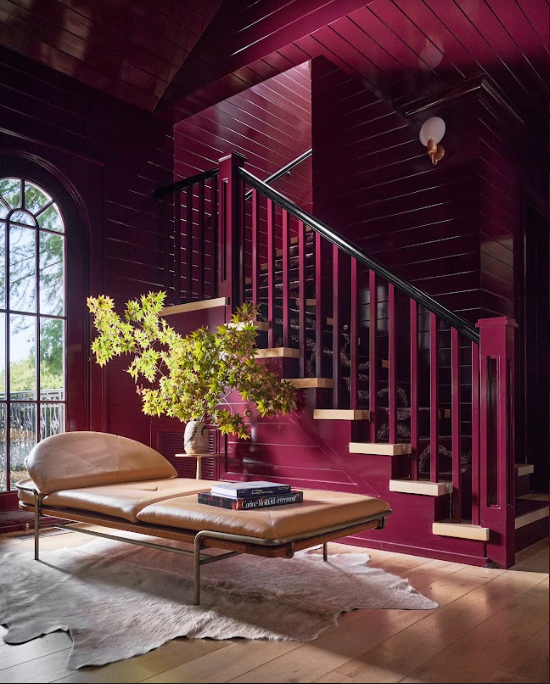
Often people picture daybeds as one with a back and sides, stuffed with cushions, and styled similarly to a bed. But as this versatile furniture piece has grown in popularity, several new — and much sleeker — styles have hit the market, suited to a more modern living room aesthetic.
In this living room, the slender tan-colored daybed looks contemporary, suiting the modern design of the room. While the staircase, painted a luscious berry red, makes an immediate impact, the long seater matches the wood tones of the flooring and looks classic and tasteful.
'It is a small corner, so it required a small custom-made corner banquet which wouldn't have been very comfortable and only usable for different functions,' explains Chad Dorsey, founder of Chad Dorsey Design. 'So I selected the daybed because it can be used as a bench for up to three people to sip their cocktails, and can also be used as a napping lounge on a Sunday afternoon after a few glasses of Rose.'
'I also fell in love with the sculptural form of this Bassam Fellows Geometric Daybed,' he adds. 'Its clean modern lines balance the traditional interior architecture, which is the perfect sight for me.'
2. MAKE A SCULPTURAL STATEMENT
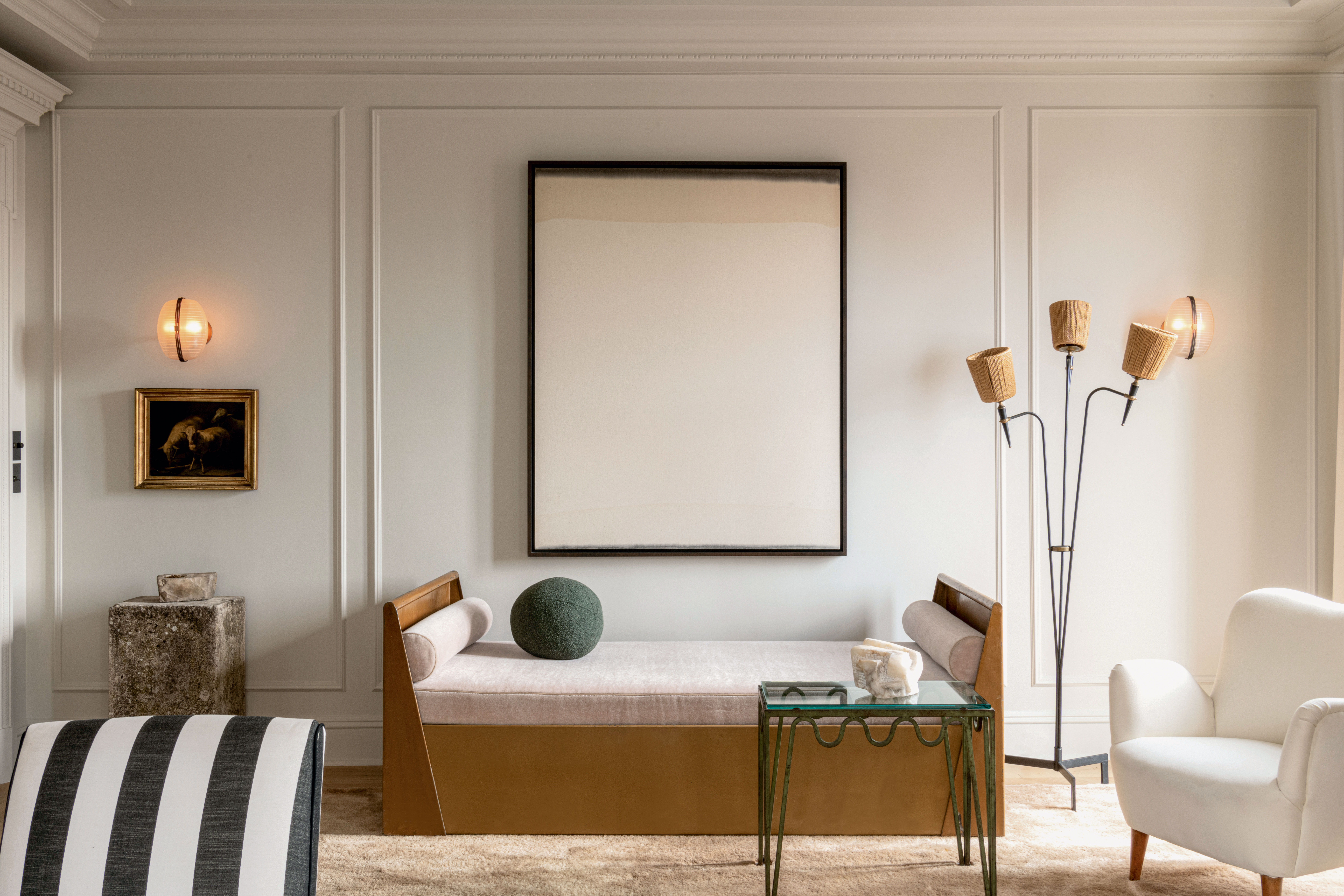
With so many beautiful and modern designs out there these days, daybeds in living rooms offer so much more than simply function. As evidenced by this living room by renowned interior designer Jeremiah Brent, the timber-framed daybed has an almost sculptural-like form, and contributes to the aesthetic quality of the space.
While the shape of this daybed is quite angular, reflecting all the lines in the room, such as the wall molding, there are other styles that are more bulbous and curvy, or flat and sleek, so you can be sure to find a design to suit your interiors.
3. ADD COLOR WITH A DAYBED
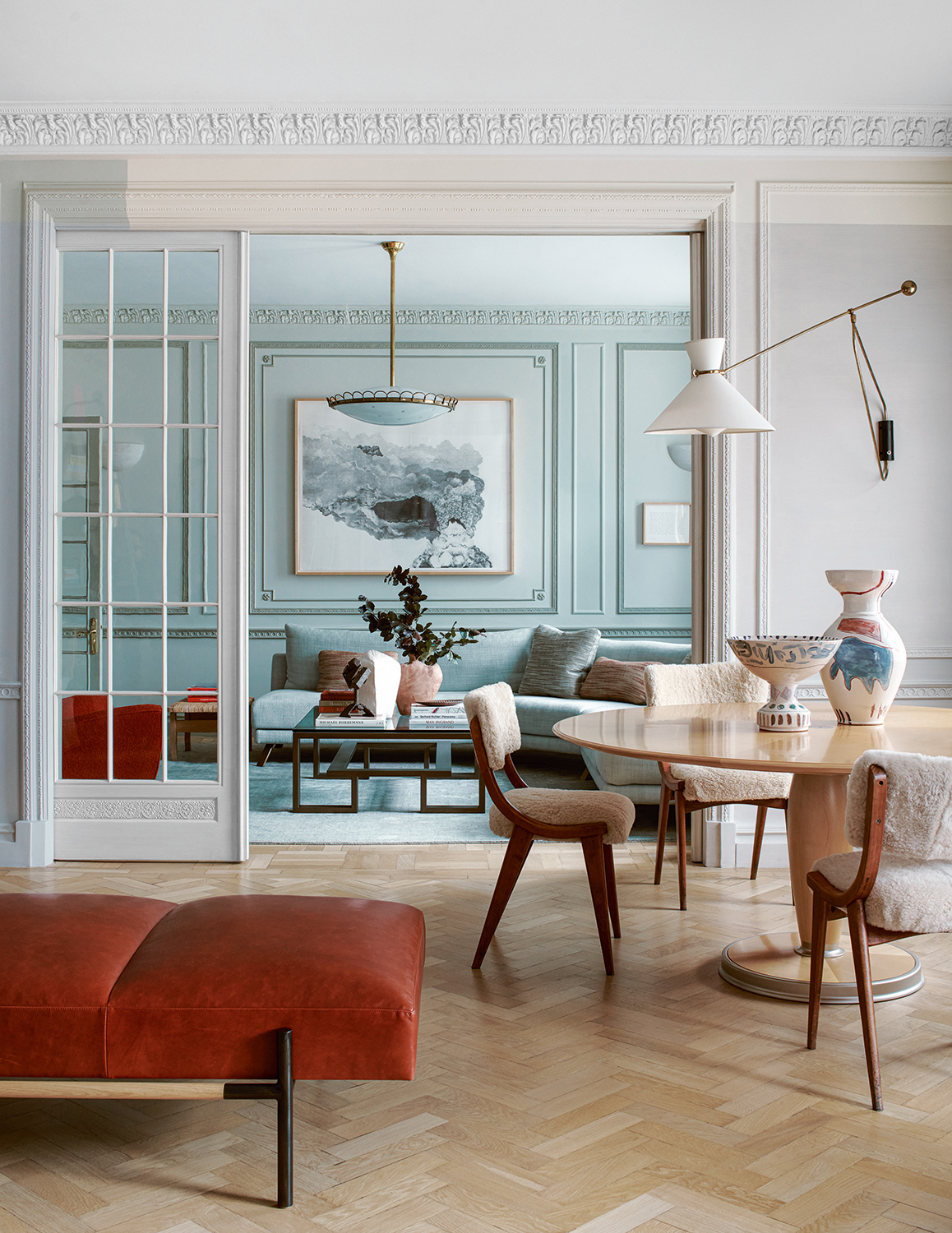
There are endless upholstery options available when it comes to daybeds, meaning they're a great way to incorporate a touch of color or pattern into your space. Unless you want them to blend seamlessly into the background, why not use them as a chance to be a bit playful. As they tend to be a lower piece of furniture, you're less likely to risk overwhelming the space.
In this colorful living room by London-based interior designer house Maddux Creative, a deep red daybed pops brilliantly against a bright pale blue living room wall, further proving TikTok's 'unexpected red' theory along with the fact that red definitely is a color that goes with blue.
Price: Was $799, Now $649.99
Colors: Caribbean, Chenille-navy, Indigo, Pinot, Toffee, etc.
4. CONVERT A FOUR-POSTER BED
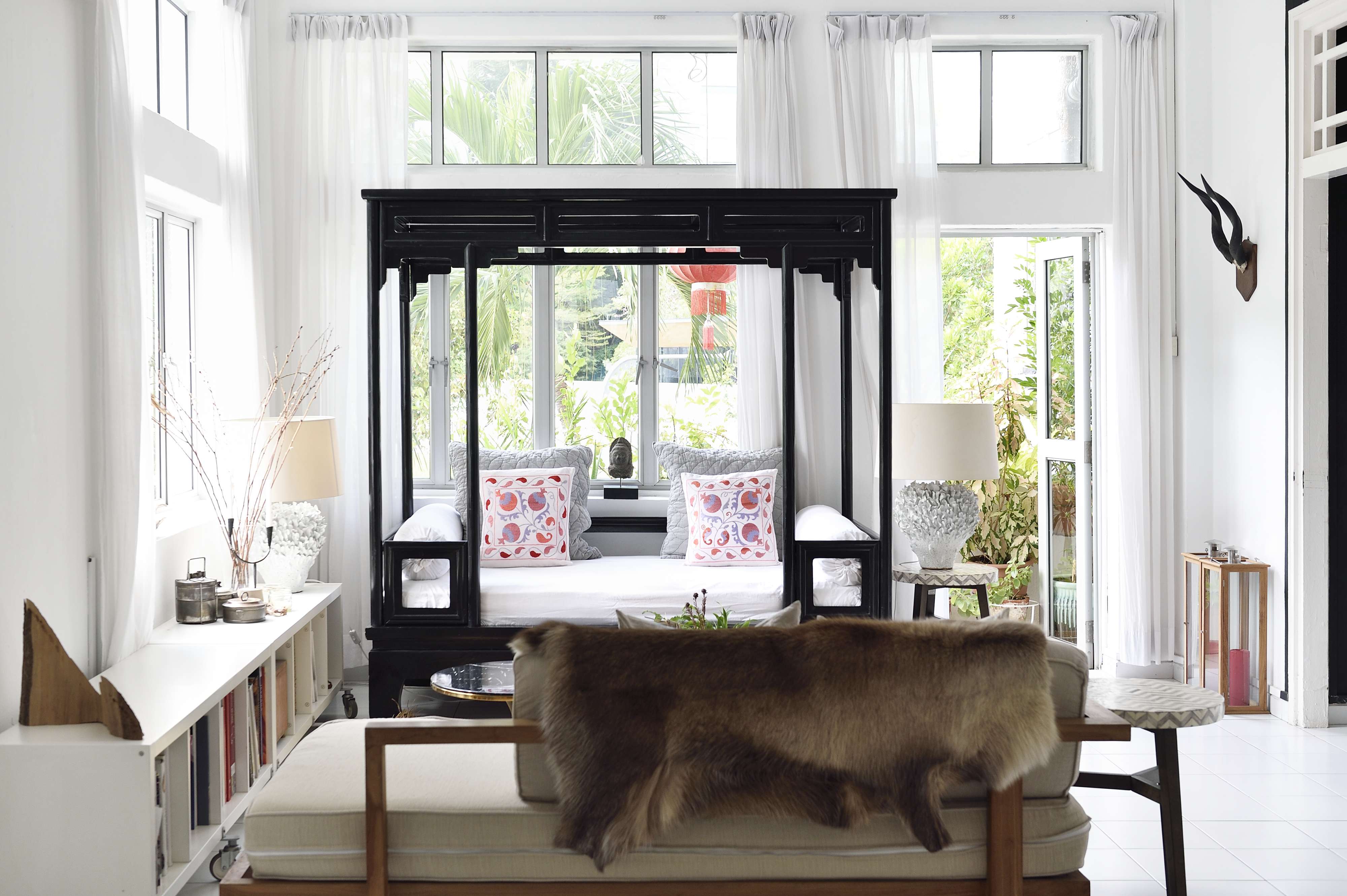
If you have a spare (or perhaps broken) bed hiding in your attic or garage, it might be time to do a little DIY to create your own version of this modern living room furniture idea. The daybed can be used as a second sofa or the primary seating — the options are endless. Simply add extra throw cushions for ultimate comfort.
'This four-poster beauty is an antique opium daybed sourced from Taylor B Fine Design in Singapore, fitted with original Chinese lattice screens,' says Anjali Mangalgiri, founder of architectural practice, Grounded. 'While it is a large piece, it fits perfectly in the living room thanks to our high ceilings. I also love how it frames the windows behind. Having a daybed instead of a couch is perfect to really sink in, for lounging comfortably after a long day. It also gives me the opportunity to bring a subtle play of some lovely fabric and textiles into the space.'
5. USE A DAYBED AS A MULTIFUNCTIONAL PIECE
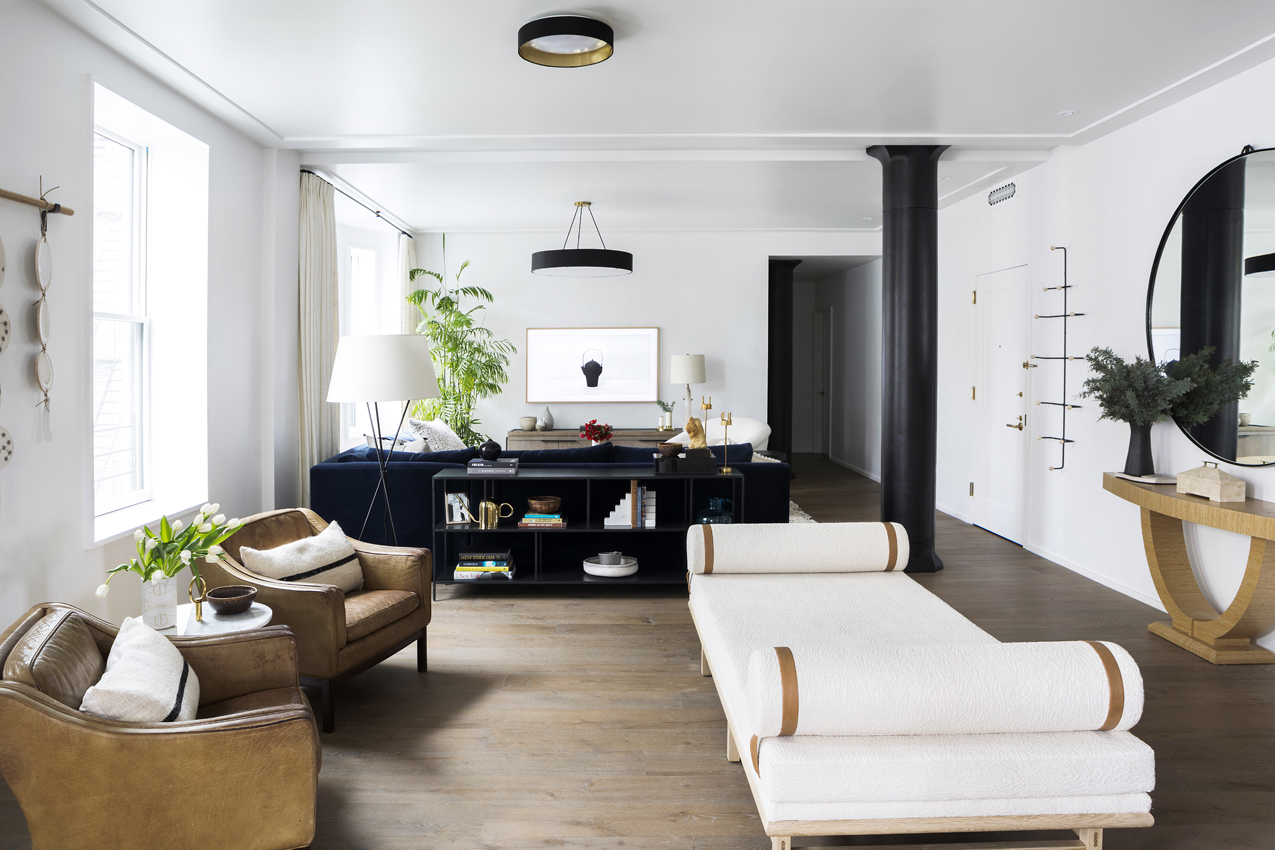
You'll be surprised how many uses you can find with a daybed. An armless, backless option can be perfect for a reading nook that doesn't feel quite so quaint. You can place it next to the entrance door for people to sit and remove their shoes. It can be used to fill an awkward spot in the living room or to round out a seating arrangement in an open-concept space. In a small living room layout, a daybed can also double as a guest bed.
'We knew we wanted a daybed in this area to serve as a bench for the entry (which opens right into the apartment) and also to provide some seating for the leather chairs that sit opposite,' explains Tyson Ness, founder of Studio Ness. 'The family is a young one with two small boys and they used this area for playful and needed space for the adults to comfortably perch. The client was drawn to light and bright interiors so we chose a heavy-duty performance fabric for the light tone that would hold up to daily family activities and use.'
6. USE A DAYBED TO PARTITION SEPARATE ZONES
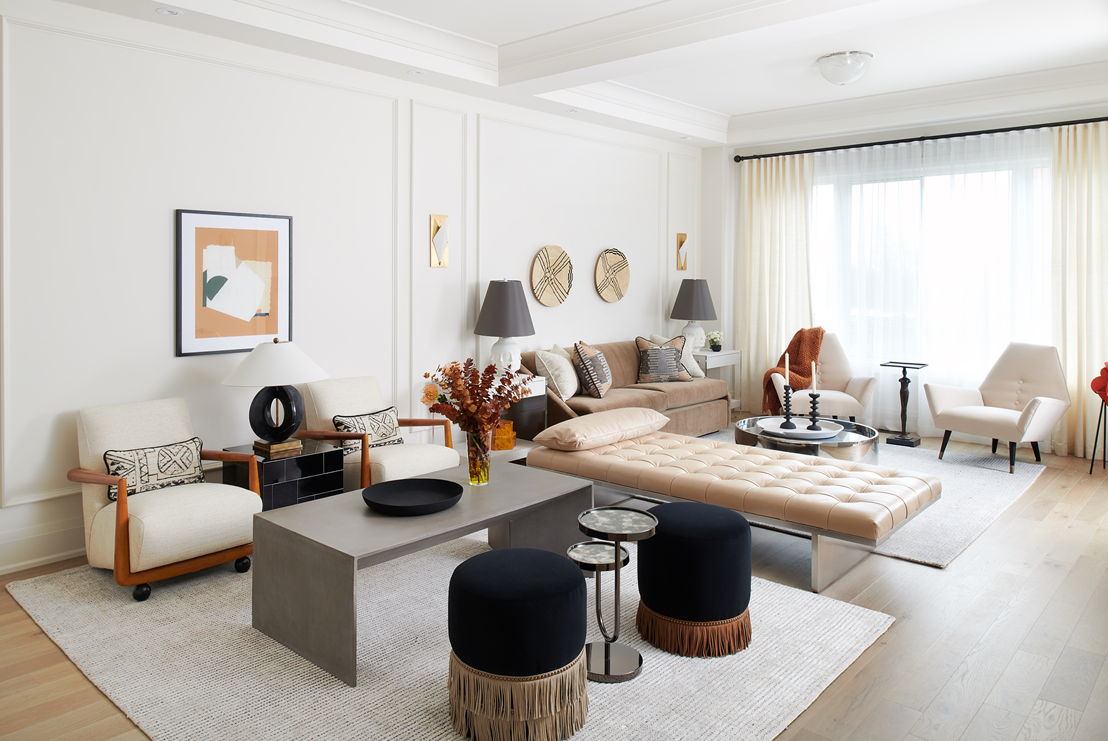
Looking for a way to create zones and separate two similar areas with different functions? A wall isn't always the most practical option, and wooden or fabric screens can make a space seem more cramped, especially if you're working with a small apartment living room.
A backless daybed can work wonders. It can act as a room divider that doesn't interfere with sightlines, provides additional seating and segregates functions in an open-plan space.
'In this project, the backless daybed doubles as a transitional room separator in a large living space,' says Sabrina Albanese, founder of Sabrina Albanese Interiors.
7. USE A DAYBED AS A SOFA IN A SMALL LIVING ROOM
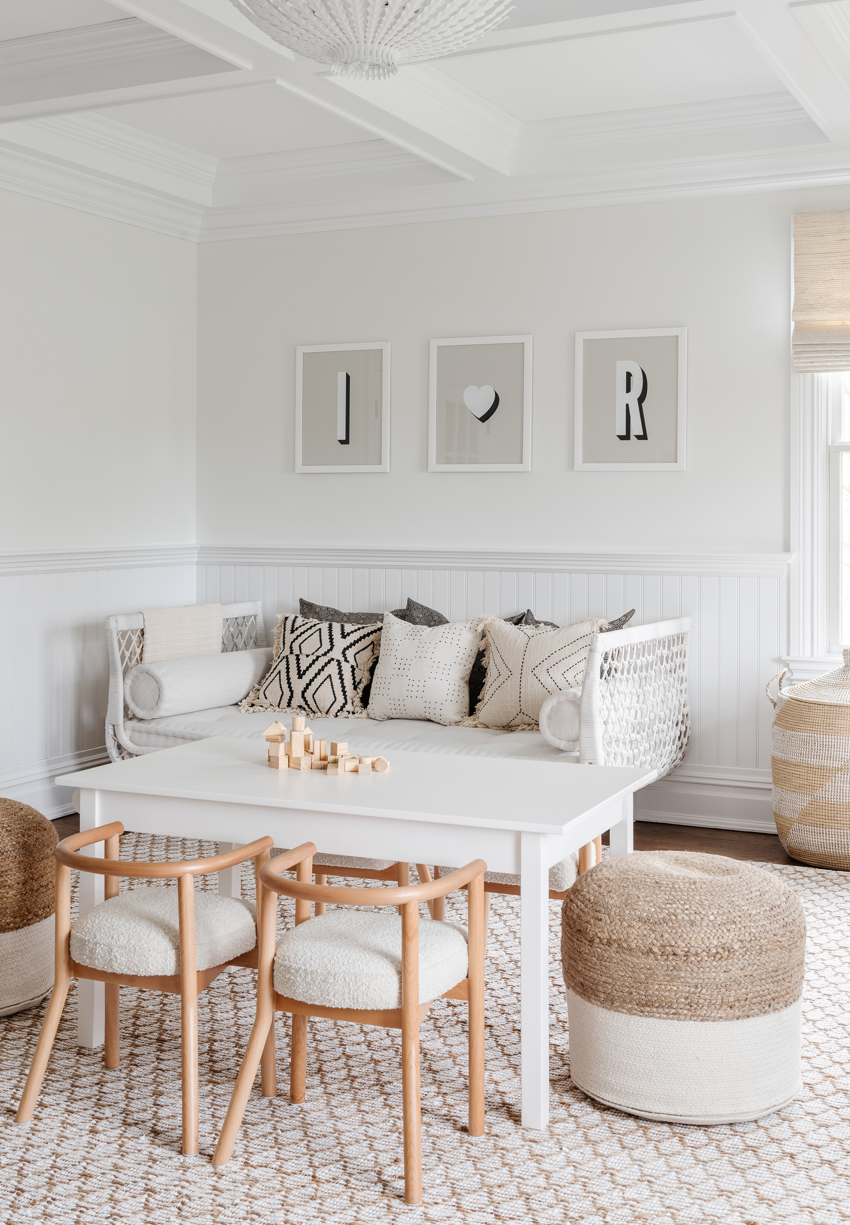
In small or narrow living rooms, space is always at a premium. That's why every single piece needs to work hard to earn its place in the room. The need is always for compact pieces that can do more, and take up the least real estate in the room. This is where daybeds excel.
Opting for a daybed with a small footprint rather than a bulky sofa can make the space feel visually lighter and more spacious, especially if you choose a style with a clean, neutral color palette and simple design.
'The daybed provided function but also helped elevate the aesthetic of this space designed for the front of the house,' explains Trish Lynn, principal designer of Colette Interiors.
Price: Was $905, Now $649.99
Features: Twin-size trundle bed included, woven detailing, made from solid rubberwood
8. FILL AN EMPTY CORNER WITH A DAYBED
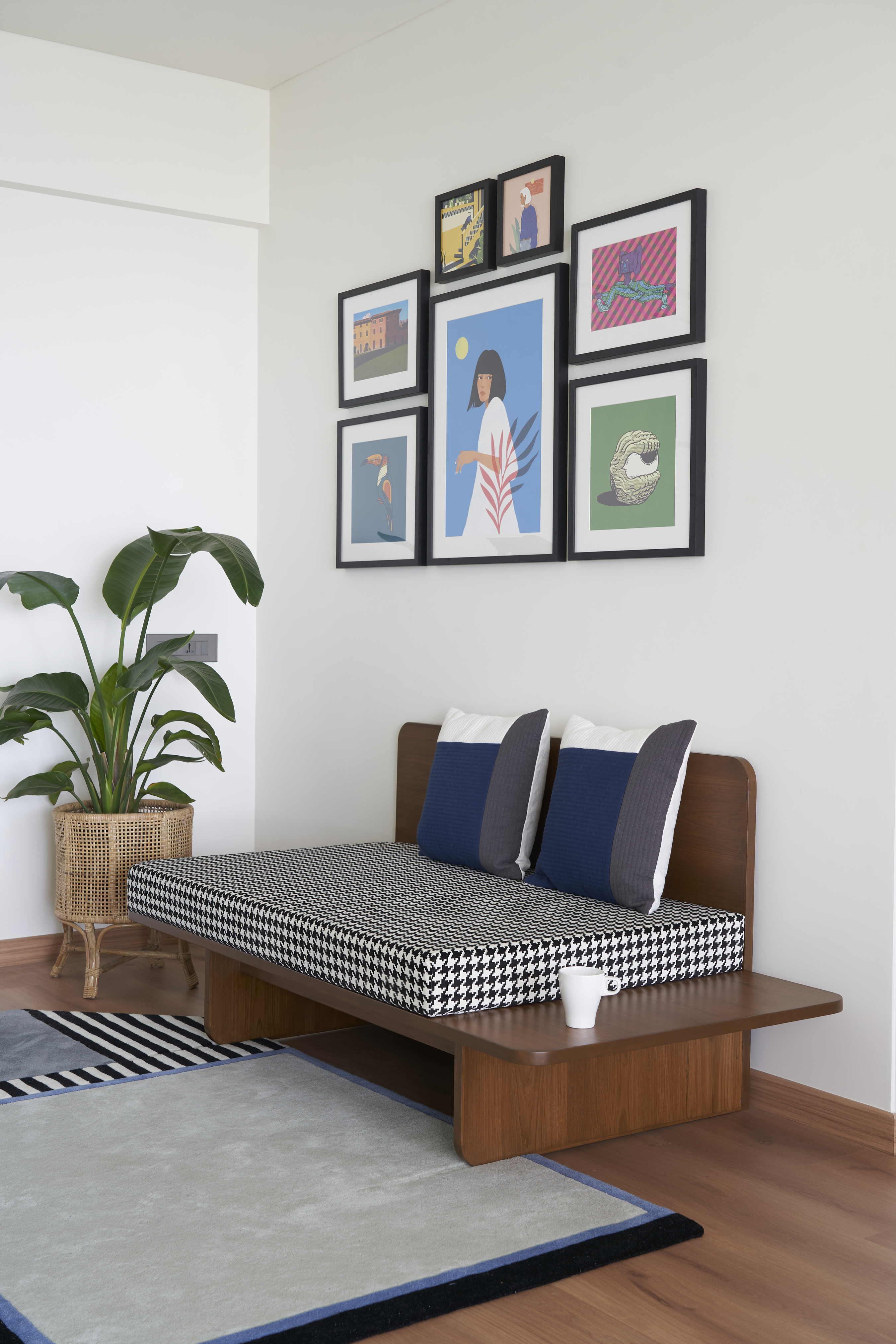
Most homes have awkward corners and empty spots that lack purpose. While adding artwork to the walls can help, a daybed is a great small living room furniture idea. Not only can it add color, texture and extra seating, but it can also double as a storage spot — somewhere to keep extra pillows, throws or accessories in the room.
Daybeds can also double as the perfect window seat, ideal for lounging and soaking up the sun. If you don't want your corner to stand out too much, merge the hues of the daybed and its furnishings to the wall color and floors, as seen in the image above. This way, the piece can offer additional function without making your living room feel overcrowded.
9. OPT FOR A BUILT-IN DAYBED
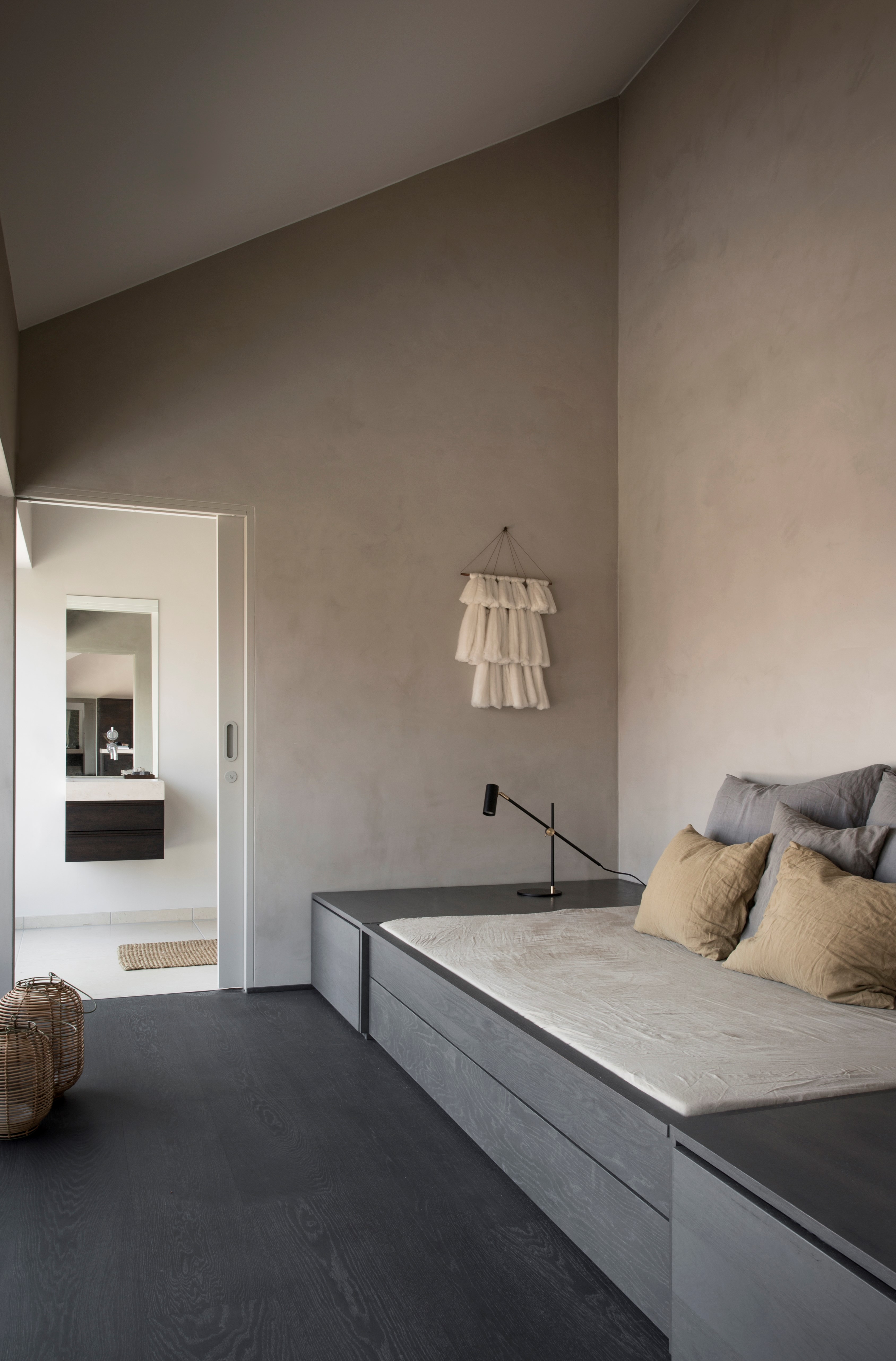
While a more expensive option, a built-in daybed has plenty of perks and can help to create the feeling of an ultra-luxurious and cozy living room. It can maximise an entire wall or area for seating, and gives you more options for storage, including installing cubbies and drawers into its design.
If you want your daybed to look more like a sofa, you can add large cushions to make it look more like a seater than a bed.
10. FILL A NICHE WITH A DAYBED
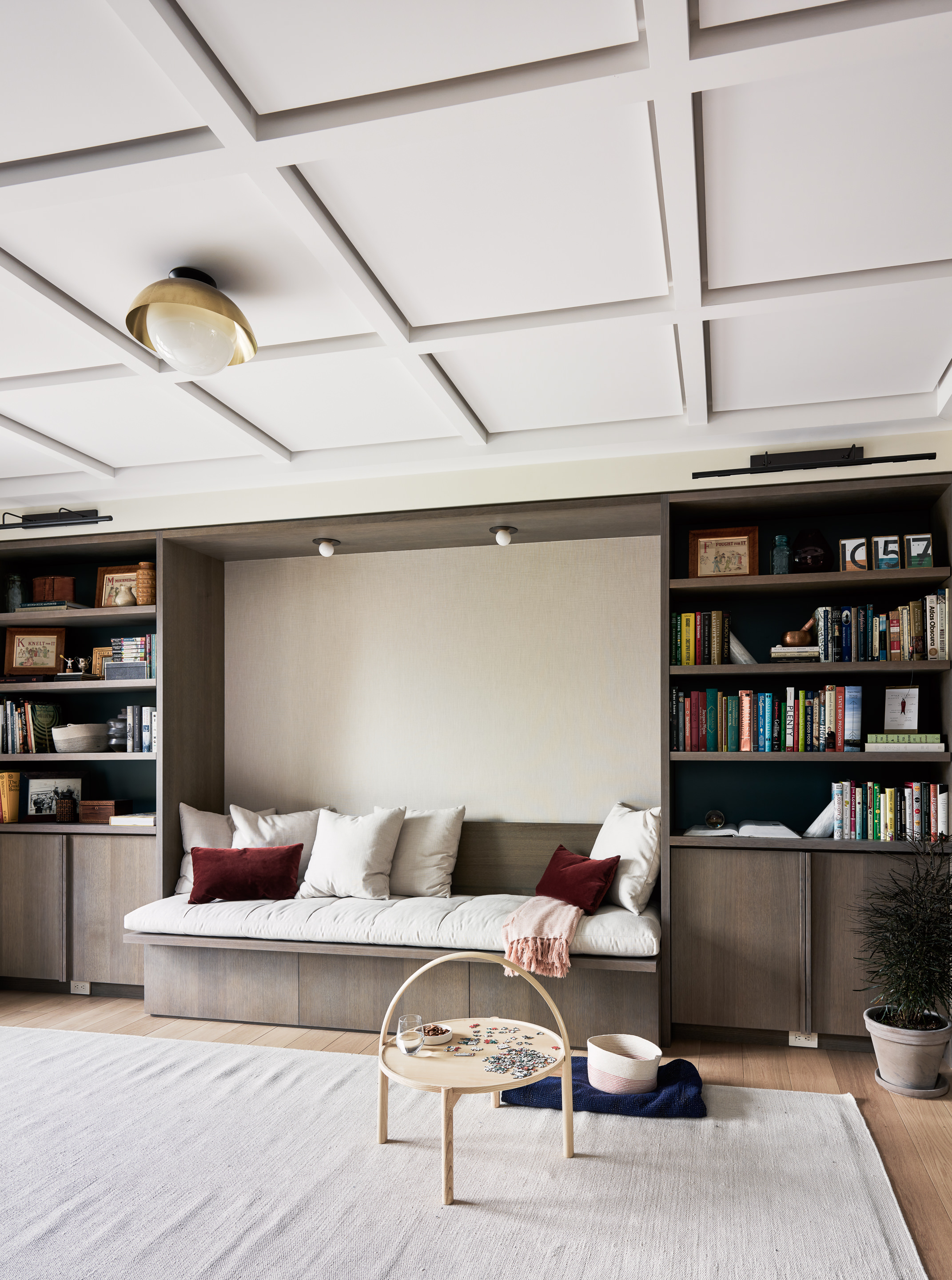
Another clever use of daybeds in living rooms is their ability to fit into any unused space. In this living room corner, a daybed has slipped seamlessly in the space between the two bookshelves. Not only does it offer up space for socializing, but it also doubles as a lovely nook for reading.
This can also become a great study spot with the addition of a small table. Post studying, the daybed can become a great spot for a quick snooze. See — multifunctional!
11. GET A GROUND DAYBED
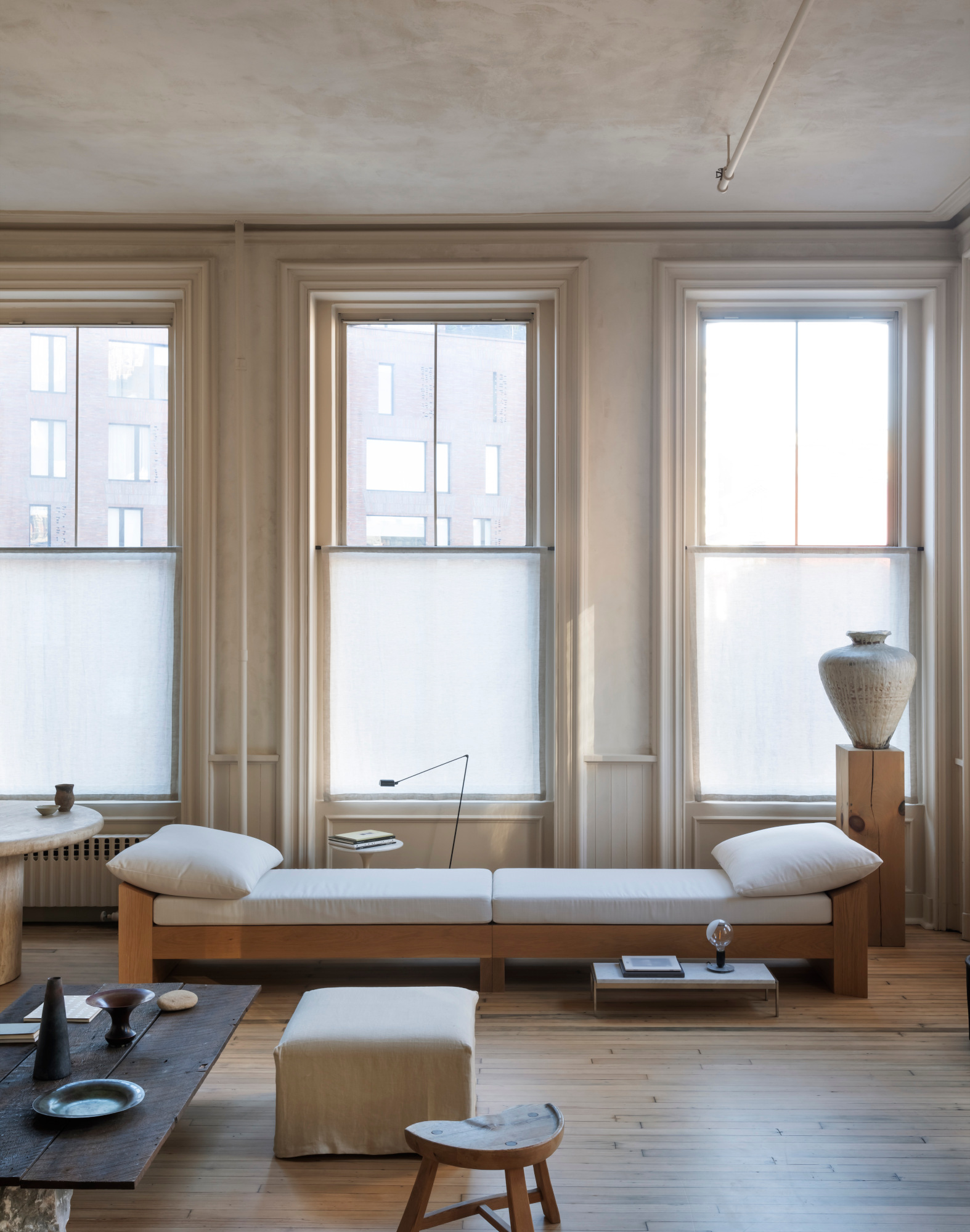
In larger living rooms, you often need a second sofa, but the last thing you want is to interrupt the sightlines or make the space feel too crowded. This is where a low and minimalist daybed can become quite handy.
Low-laying daybeds can not only make spaces feel much larger than they actually are, but they are also great for styling under windows or large artworks where a traditional sofa may not fit.
Can you use a daybed instead of a couch?
Depending on the design, there is no reason why you couldn’t use a daybed in place of a sofa or couch, especially if you’re working within a smaller space.
In fact, for small apartments, having a multifunctional piece like a daybed is a better bet than a big, bulky sofa. Choose an upholstered piece, which features fabric on all three sides. You could go in for a tufted daybed, a nailhead trim, or a faux leather one that looks like a traditional sofa.
Daybeds serve several functions, and can easily double up as a couch, a reading corner, a lounger, or even a guest bed. A twin-size daybed will arguably be the most comfortable seat in the house because it offers the luxury of a conventional bed.
While modern, sleeker styles tend not to have a backrest, and therefore could prove rather uncomfortable for more relaxed reclining, larger built-in styles with a few cushions added in could easily be used instead of a couch.
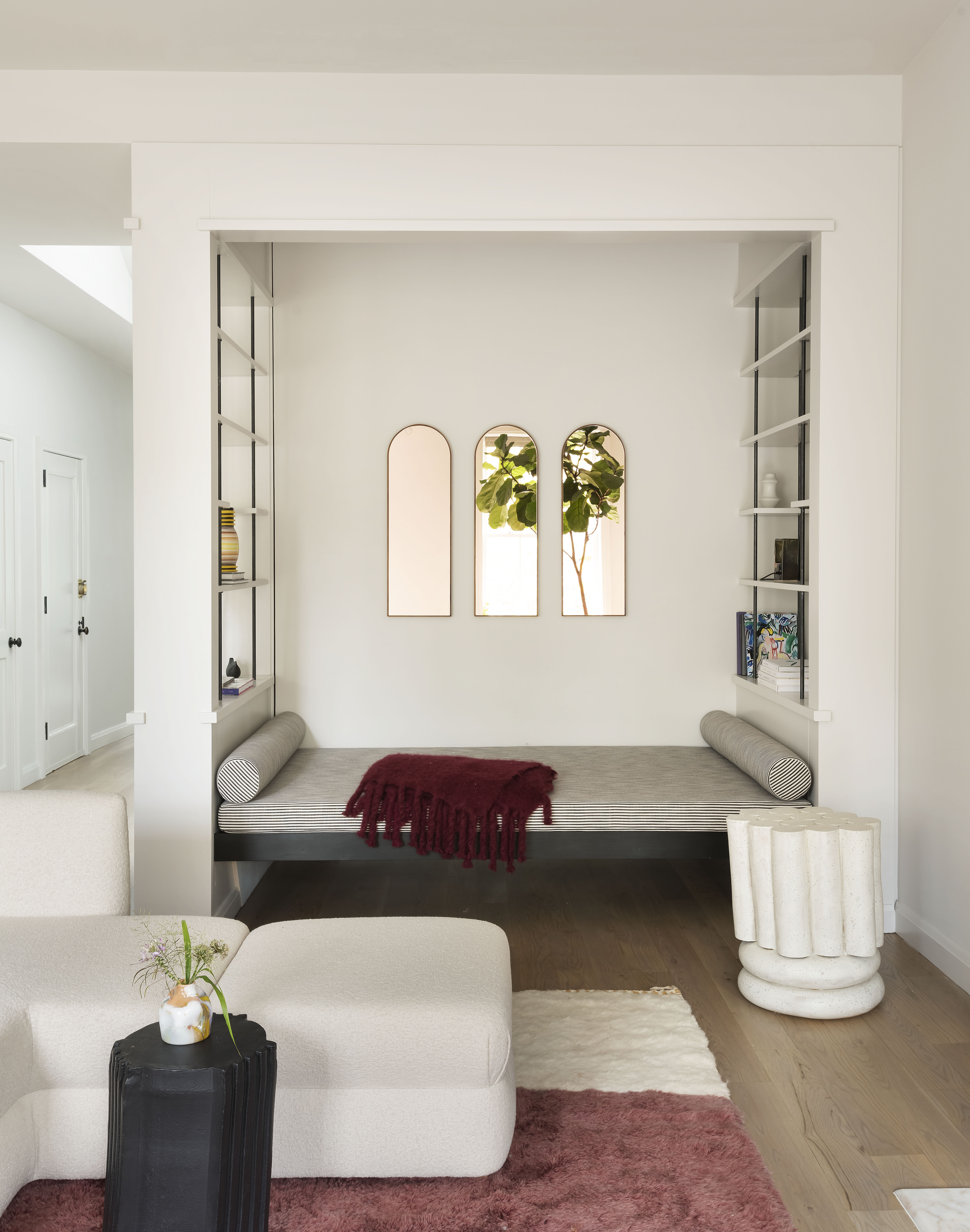
Where is the perfect spot for my daybed?
Daybeds are versatile pieces of furniture that can fit into any room, scheme or decor style. They work all around the house, but by far putting daybeds in living rooms is the best place for them, whether they're replacing a sofa or providing additional seating.
This is the space you're most likely to entertain, or spend time living in, so it's the best place to make sure you get the most use out of them.
In saying that, daybeds can also be placed in an awkward alcove, niche, or under a low window. They can be placed next to bookshelves to provide the perfect reading spot, or, if you opt for a lightweight and easy-to-carry style, can be moved around the home — from kids' bedrooms, to guestrooms or even, depending on what it's made of, your balcony or garden.
How can I make my daybed comfortable as a couch?
Whether you're planning to use a daybed rather than a sofa or couch in your living room, or you're just interested in making yours more comfortable for long, languorous lounging, the good news is there are plenty of ways to do it.
The obvious answer is throw pillows and blankets. Bolster pillows are particularly good for this style of chair as they can support your head while you're reading (or daydreaming), but regular throw pillows do just as well.
The other thing to think about is the actual padding on the daybed. Depending on the style you've gone for — some more minimalist designs are sleeker and will therefore less padded — the more padding, the plusher the feel. This is where bulkier daybeds, with sides and backrests, will tend to be more comfortable, as they can accommodate thicker padding, and in some cases even a mattress.







